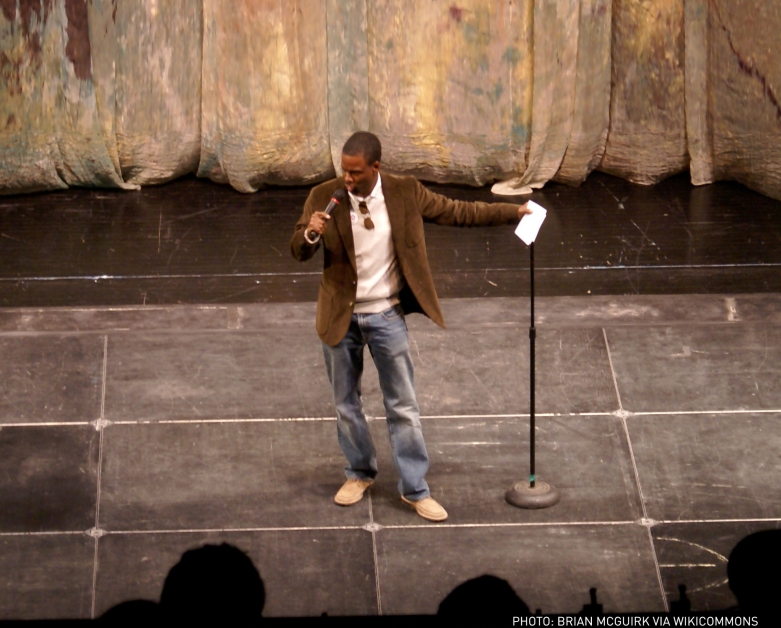Chris Rock Explains Why Privacy Matters
Page Media

In an interview published in New York Magazine, Chris Rock and Frank Rich have a very interesting discussion about the effect of ubiquitous cell phones on the creative process for stand-up comics. Although as Rock says standup comedy is in some ways unique, the effects that he describes are still a perfect illustration of why protecting privacy is important.
Rich, citing complaints by the comedian Patton Oswalt about the effect that cell phones can have on performance, asked Rock about that issue. Rock responded,
"It is scary, because the thing about comedians is that you’re the only ones who practice in front of a crowd. Prince doesn’t run a demo on the radio. But in stand-up, the demo gets out. There are a few guys good enough to write a perfect act and get onstage, but everybody else workshops it and workshops it, and it can get real messy. It can get downright offensive. Before everyone had a recording device and was wired like fucking Sammy the Bull, you’d say something that went too far, and you’d go, “Oh, I went too far,” and you would just brush it off. But if you think you don’t have room to make mistakes, it’s going to lead to safer, gooier stand-up. You can’t think the thoughts you want to think if you think you’re being watched."
Rock told Rich that he practiced his Saturday Night Live material at the New York City club the Comedy Cellar all week. “If I messed up a word here and there, which I did, it could really be get-him-out-of-here offensive,” Rock said. “Comedians need a place where we can work on that stuff.”
Comedians are not alone in needing a private space where they can take risks, push boundaries, experiment with criticism, test out ideas to see how others will react—and sometimes just say things wrong. I have mentioned before the story told by Milan Kundera of how the Czech police destroyed an important leader of the Prague Spring uprisings simply by recording his conversations with a friend and then broadcasting them on the radio. Kundera pointed out that this worked because “in private, a person says all sorts of things, slurs friends, uses coarse language. . . makes a companion laugh by shocking him with outrageous talk, floats heretical ideas he'd never admit in public and so forth.”
Of course comedy clubs are not “private” spaces in the ordinary sense—obviously they are in fact public. But (as I have argued), a key aspect of privacy is limiting the “reverberation” of one’s action and speech—the degree to which it will be spread around and have social consequences for you later on. Before cell phones, Rock is saying, even comedy clubs were “private” in the sense that the things that a comedian said there would reverberate only in very limited ways.
Comedy and mockery are perhaps the most powerful form of criticism, and comedians play a special role in society—from the classic archetype of the court jester, to today’s much-commented-upon phenomenon of political comedians like Jon Stewart and Stephen Colbert who often seem to cut to the truth of things much better than straight news outlets. Comedy is often funny because it flirts with the boundaries of social propriety and so it makes sense that even its masters need safe spaces to explore its possibilities. But the same dynamics work far beyond the realm of professional comedy; even everyday people wield humor as a weapon, and even beyond humor need space to safely explore the boundaries of the socially acceptable. A society that loses those spaces is one that will be less dynamic, creative, progressive, and free. When Chris Rock hones his standup lines, he’s engaging in an activity that is central to human freedom (albeit at a higher level than most of us can pull off).
I don’t have an answer for the particular problem of cell phones in comedy clubs—as private spaces, they are within their rights to ban recording, and from Rock’s comments it sounds as if that may be the direction in which things are headed (though it may prove difficult given the miniaturization of technology). But as a larger metaphor for privacy, we are all stand-up comedians.
Jay Stanley is the Senior Policy Analyst with the ACLU's Speech, Privacy & Technology Project.
